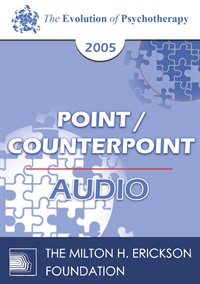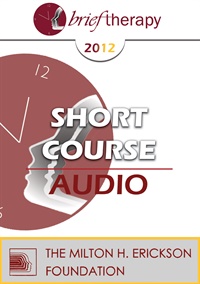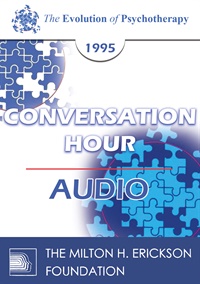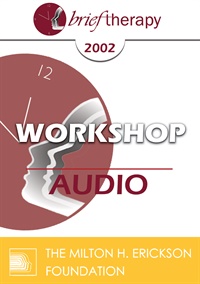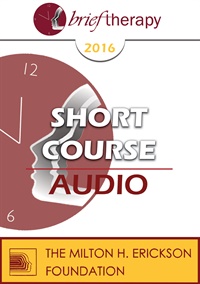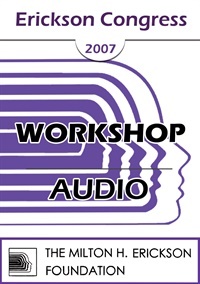EP05 Point/Counterpoint 01 - Constructive Narrative Perspective of Psychotherapy: Example of PTSD - Donald Meichenbaum, PhD
- Average Rating:
- Not yet rated
- Topic Areas:
- Point/Counterpoint Sessions | Post-Traumatic Stress Disorder (PTSD) | Psychotherapy | Storytelling | Constructive Narrative
- Categories:
- Evolution of Psychotherapy | Evolution of Psychotherapy 2005
- Faculty:
- Donald Meichenbaum, PhD | Michael White, B.A.S.W.
- Duration:
- 1 Hour 02 Minutes
- Format:
- Audio Only
- Original Program Date:
- Dec 07, 2005
- License:
- Never Expires.
Description
Description:
An example of how a Constructive Narrative Perspective (CNP) can be used to explain the persistence of Post-traumatic Disorder and the treatment implications will be offered. Research implications for using a CNP will be examined.
Educational Objectives:
- To describe Post-traumatic Stress Disorder from a Constructive Narrative Perspective.
- To list three specific interventions for patients with PTSD from a Constructive Narrative Perspective.
*Sessions may be edited for content and to preserve confidentiality*
Credits
Faculty

Donald Meichenbaum, PhD Related Seminars and Products
Donald Meichenbaum, Ph.D in Clinical Psychology is currently Research Director of Melissa Institute for Violence Prevention, Miami (melissainstitute.org). He is one of the founders of cognitive behavior therapy. He was voted one of the most influential psychotherapists of the 20th century. Latest books include "Roadmap to Resilience" (www.roadmaptoresilience.com) and "Evolution of Cognitive Behavior Therapy: A Personal and Professional Journey."

Michael White, B.A.S.W. Related Seminars and Products
MICHAEL WHITE, B.A.S.W., is Director of Dulwich Centre, Adelaide, South Australia. He is engaged in the provision of therapeutic services, in teaching and supervision and in working with communities. He has published numerous articles and several books on the subject of narrative therapy.


